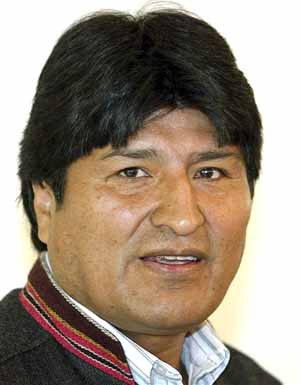Bolivia's government and opposition reach agreement
 La Paz - Bolivia's leftist President Evo Morales and opposition governors rebelling against his reform plans agreed on Tuesday to start talks to end the violence which threw the country into a crisis.
La Paz - Bolivia's leftist President Evo Morales and opposition governors rebelling against his reform plans agreed on Tuesday to start talks to end the violence which threw the country into a crisis.
Talks on the roadmap went ahead despite the arrest of Leopoldo Fernandez, governor of opposition-controlled Pando region. Morales accuses him of having allegedly orchestrated a massacre among his peasant supporters on Thursday, which left at least 15 people dead.
Negotiations centre on Morales' plans to redistribute wealth from regions in the east and south of the country in favour of the impoverished indigenous majority.
The opposition governors vowed to end occupation of government buildings, curtailing violent protests which resulted in at least 17 deaths last week, while Morales promised to discuss their demands for increased autonomy and a greater share of revenue generated by the state's energy business.
Morales on Monday received strong support from nine regional leaders at an emergency summit in the Chilean capital of Santiago of the Union of South American Nations.
Five of the country's nine provinces, concentrated in the resource-rich eastern crescent of the country, are demanding the return of taxes levied on oil and natural gas revenues, which are to help provide pensions for all Bolivians over age 60.
The crisis has escalated with the approach of December's referendum on Morales' new constitution, which is the centrepiece of his programme to distribute more of Bolivia's wealth to the impoverished, indigenous majority.
In August, Morales, the Andean nation's first indigenous president, survived a recall referendum with two-thirds of the vote.
Bolivia's population of 10 million has a 60-per-cent poverty rate, affecting mostly indigenous people. (dpa)